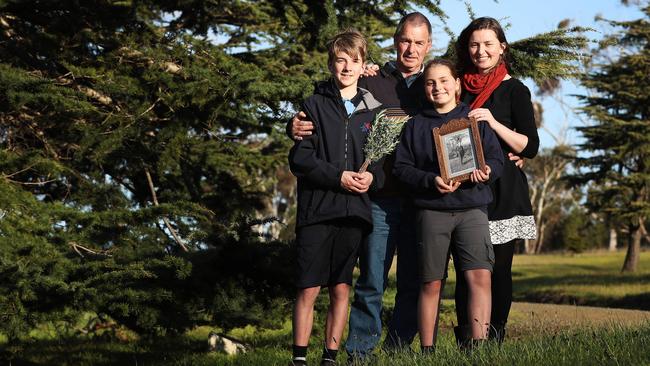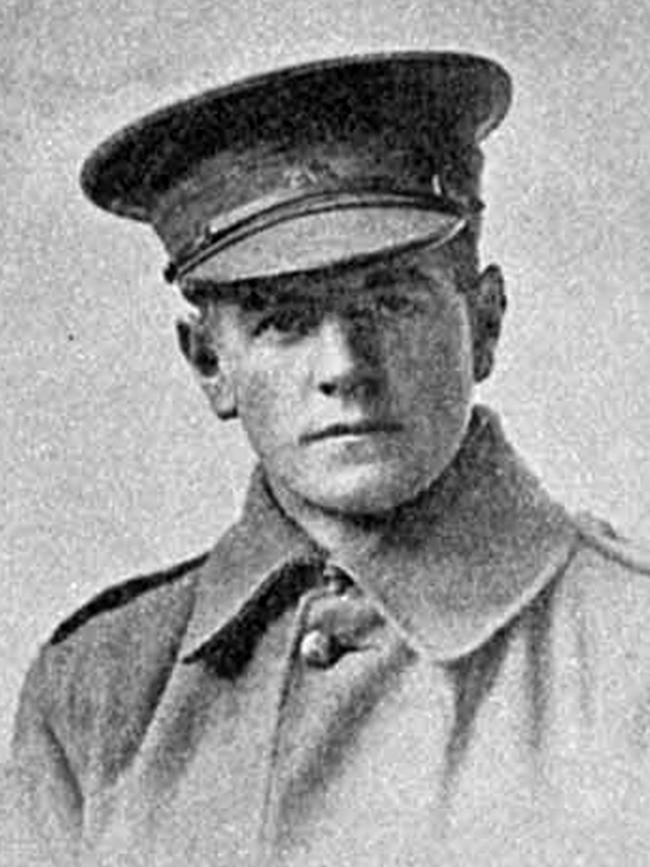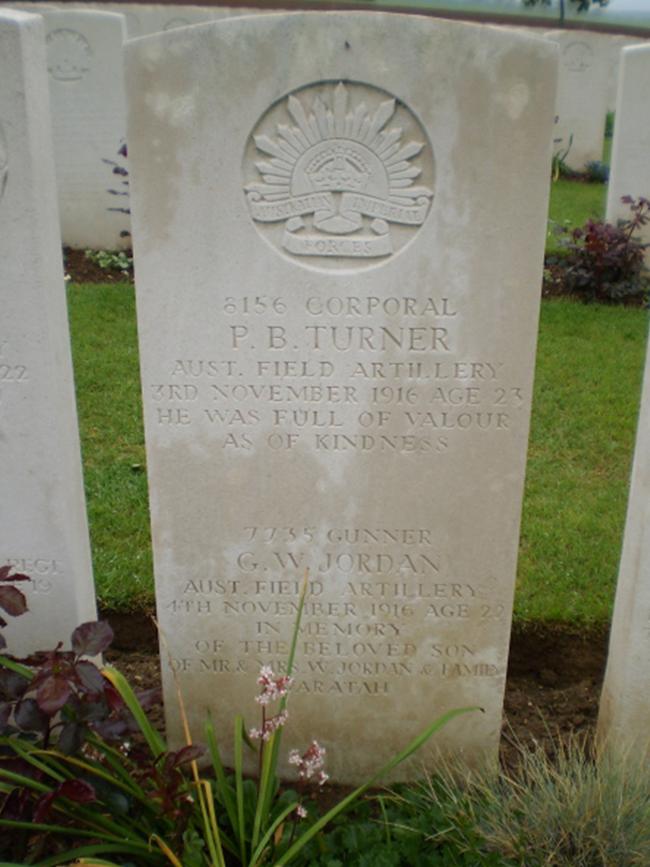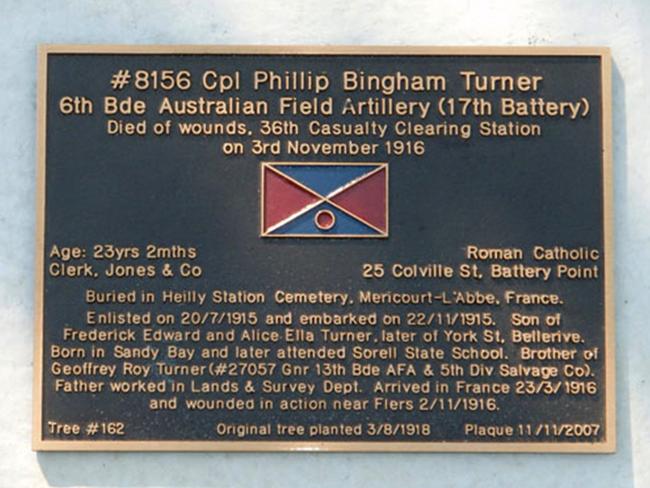100 Days of Heroes: Family of World War I soldier Phillip Turner never forgets
A HOBART family is doing its best to ensure the life of World War I soldier Phillip Turner is not forgotten.

Tasmania
Don't miss out on the headlines from Tasmania. Followed categories will be added to My News.
A HOBART family is doing its best to ensure the life of World War I soldier Phillip Turner is not forgotten.
Rachael Gates and family are among the many who have been following the Mercury’s 100 Days of Heroes series with special interest because of their honoured ancestor.
Phillip Bingham Turner is remembered at tree 162 on the Soldiers’ Memorial Avenue and was among those commemorated on the first day of planting 100 years ago.
Three generations of nephews have followed in his footsteps on the athletics track, with Andrew and Chris Gates being almost weekly visitors to his tree and plaque on the Avenue during their training sessions on the Domain.
MORE 100 DAYS OF HEROES:
BOMBARDIER RICHARD HIGGINS BURIED AT SEA
JACK BENSON WAS ONLY 17 WHEN HE WENT TO WAR
JOHN CLEARY WAS KILLED AT THE BATTLE OF POZIERES

Phillip was born at Sandy Bay in September 1893, the eldest child of Frederick and Alice Turner of 25 Colville St, Battery Point. He was named in honour of his grandfather who was a veteran of the Crimean War.
Phillip was a keen athlete and was employed as a clerk at Hobart Gas Company and Henry Jones & Co.
He enlisted for service with the Australian Imperial Force (AIF) at Claremont in July 1915 and by Christmas he was serving as a corporal with the Mediterranean Expeditionary Force in Egypt.
Only a few months later his younger brother, and only sibling, Geoffrey, followed his lead and enlisted, also joining the Australian Field Artillery.
He transferred to France in March 1916. At noon on November 3, 1916, his unit was under heavy attack in the village of Flers.
He was stationed in the gun pit and comrades who were fighting alongside him that fateful day reported that a German shell landed in the pit and “he was wounded in the hip and burnt about the head.”

The shell caused such an explosion that only one man in the pit was left uninjured. Despite Philip’s critical injures, a witness said he had maintained a positive outlook.
“Before leaving for the dressing station, an officer gave him some spirits which brightened him,” Bombardier L.G. Emms told a later inquiry. “He was very cheerful and insisted the stretcher bearers take a rest.”
Bombardier Emms said Philip’s last words were “keep going boys” as he shook hands and said goodbye as he was transferred to the 2nd Australian General Hospital.
Several witnesses said Philip was known as “Pat” to his mates, and was a great favourite.
He was dead on arrival at the hospital.
Aged just 23, he was buried at the Heilly Station Cemetery in Mericourt-L’Abbe, in the north of France.
The family moved from Battery Point to York St, Bellerive during the war. Geoff Turner returned home in 1919 and lived out the remainder of his life at Bellerive and was coach of the Clarence Football Club.



